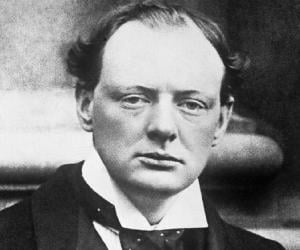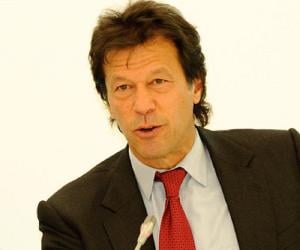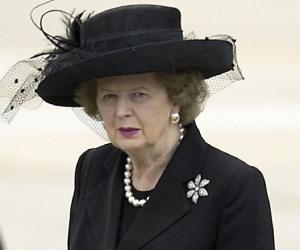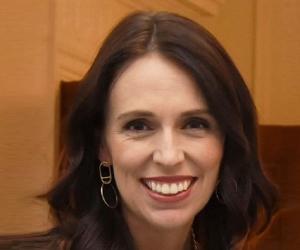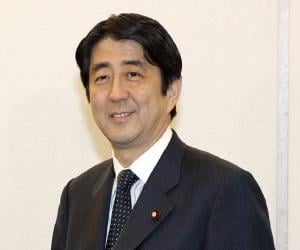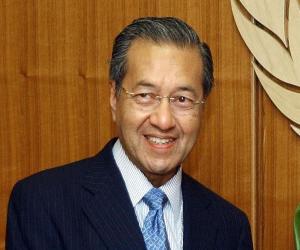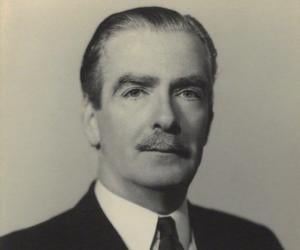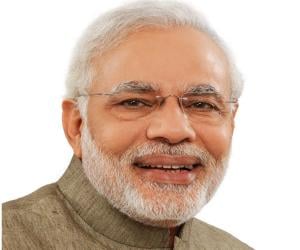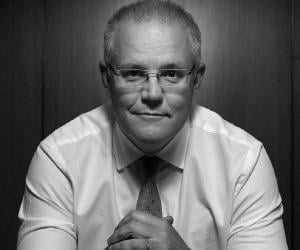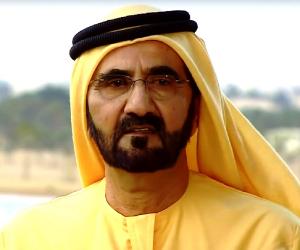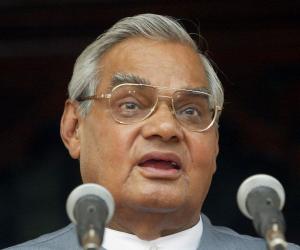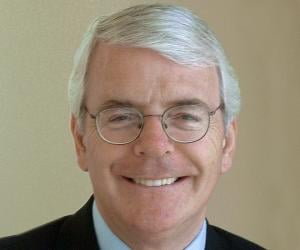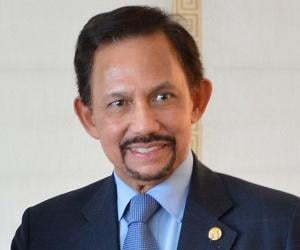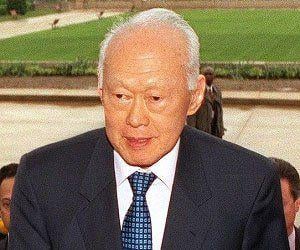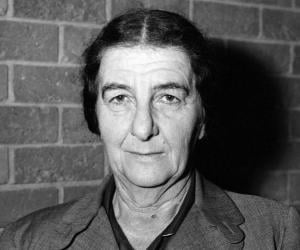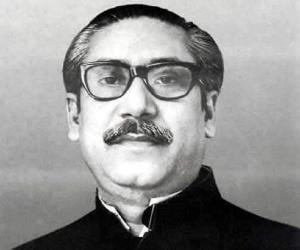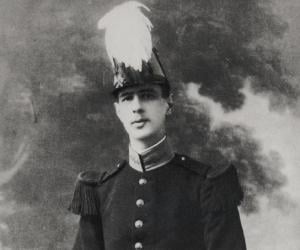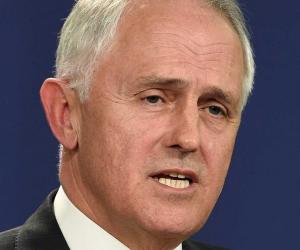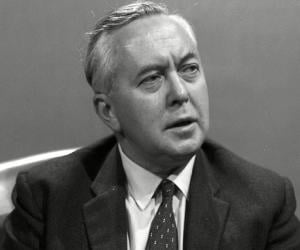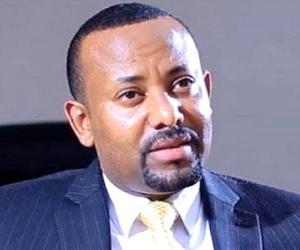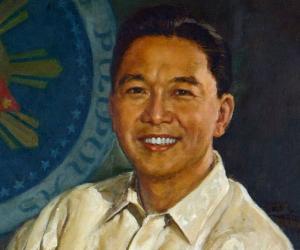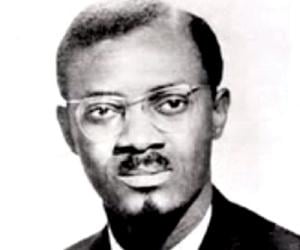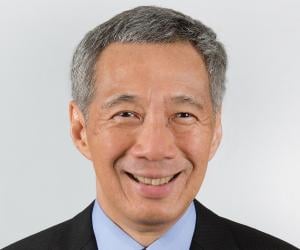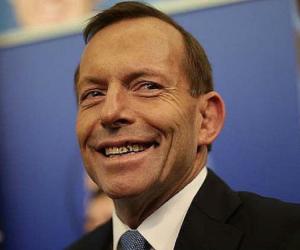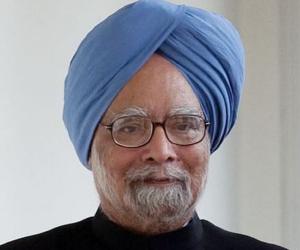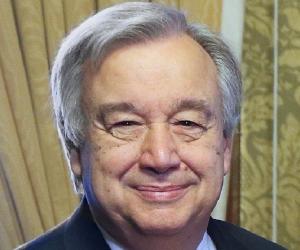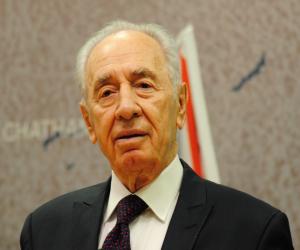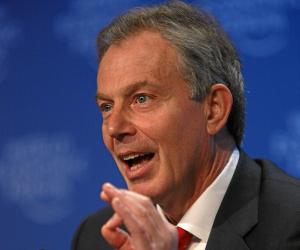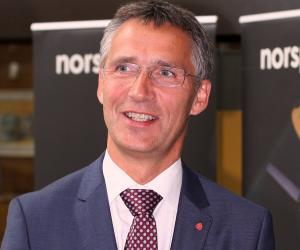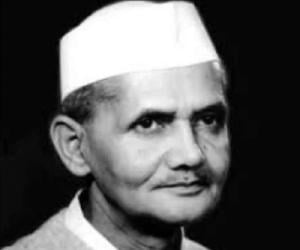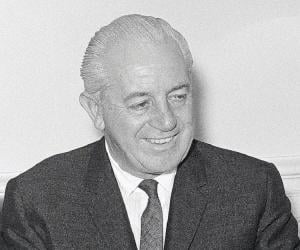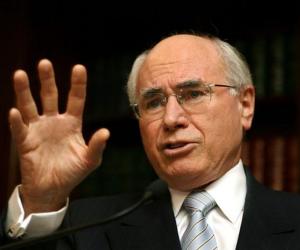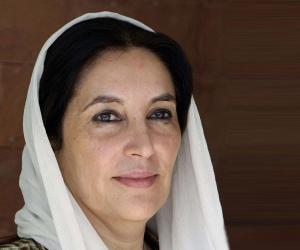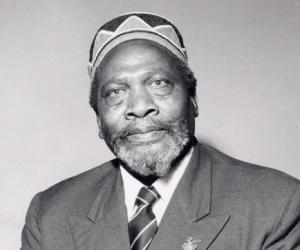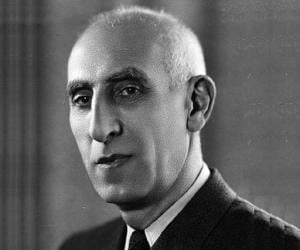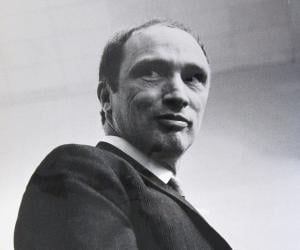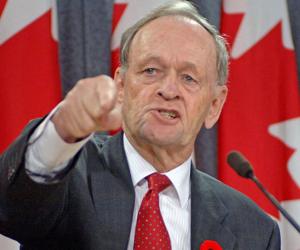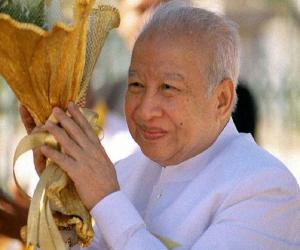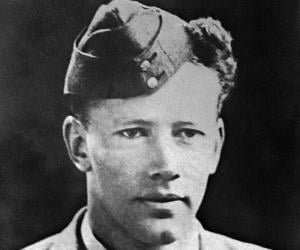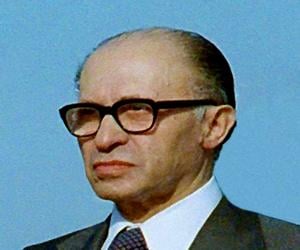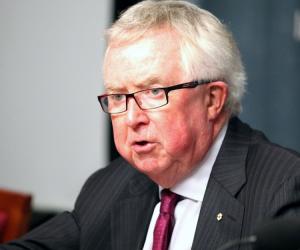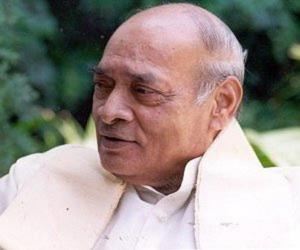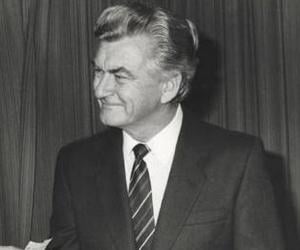The former Prime Minister of the United Kingdoms, Winston Churchill, is known for successfully leading his country during the Second World War against the Nazi Germany. An officer in the British army, he also served as a war correspondent before venturing into politics. One of the most influential peoples in British history, Churchill was also an accomplished painter.
Imran Khan is the former Prime Minister of Pakistan who was in office from 2018 to 2022. He is also the founder and chairman of the political party Pakistan Tehreek-e-Insaf. Before making an entry into politics, Imran Khan was an extremely popular international cricketer who led Pakistan to its first ever Cricket World Cup title in 1992. As a philanthropist, he established Pakistan’s first cancer hospital in Lahore.
United Kingdom’s first female Prime Minister and also the longest serving Prime Minister in the 20th century, Margaret Thatcher served three consecutive terms in the office from 1979 till 1990. Her political views and leadership approach, known as Thatcherism, got her the nickname of Iron Lady. Though controversial, she prominently ranks high in the list of the best British Prime Ministers.
Jacinda Ardern is the current Prime Minister of New Zealand. In October 2017, at the age of 37, she became the world's youngest female head of government. Ardern was praised for the way she led her country after the Christchurch mosque shootings in March 2019 and handled the COVID 19 pandemic. She led her party to victory in 2020 general elections.
Shinzō Abe was a Japanese politician who became the longest-serving prime minister in the history of Japan after serving as prime minister of Japan from 2006 to 2007 and then from 2012 to 2020. Aged 52 at the time of assuming office as the prime minister, Abe was also the youngest Japanese post-war prime minister.
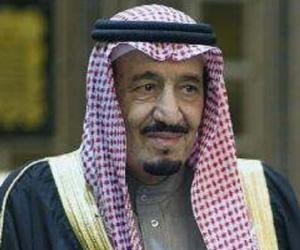
Salman bin Abdulaziz Al Saud has been reigning as the King of Saudi Arabia since 23 January 2015. An important political figure, Salman also served as the Minister of Defense from 5 November 2011 to 23 January 2015. Salman also served as the Governor of Riyadh Province on two occasions; from 1956 to 1960 and again from 1963 to 2011.
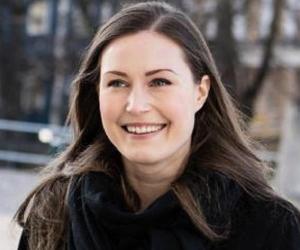
Finland’s 46th prime minister, Sanna Marin has also previously been the country’s minister of transport and communications. A Social Democratic Party member, she was dragged into a controversy after a video of her partying and dancing became viral in 2022, with critics accusing her of drug abuse.
The third Prime Minister of India, Indira Gandhi served as PM from 1966 till 1977 and then again from 1980 till her assassination in October 1984. She is considered one of India’s strongest PM and is hailed for leading India to victory over Pakistan in 1971, which resulted in the creation of Bangladesh. However, she is also categorised as authoritarian and is criticised for imposing Emergency in 1975.
Mahathir Mohamad is a Malaysian statesman, doctor, and author. He twice served as the prime minister of Malaysia and is widely regarded as one of the most popular Malaysian prime ministers of all time. Under his premiership, Malaysia underwent a period of rapid economic growth and modernization. Mahathir Mohamad is also credited with establishing strong foreign relations with many countries.
The 14th PM of India, Narendra Modi, created history when he became the first prime minister outside of the Congress party to win two consecutive terms with a full majority; he achieved this feat in 2019. From Bharatiya Janata Party worker to India’s PM, Modi’s journey is remarkable. However, he’s been plagued by controversies too, including the handling of 2002 Gujarat riots.
Scott Morrison served as the 30th prime minister of Australia between 2018 and 2022. He led his coalition to an unexpected victory in the 2019 election. Morrison's term witnessed increased tension between China and Australia. He was criticised for failure to adequately address climate change in Australia. His coalition was defeated in 2022 election and subsequently he resigned as the leader of the Liberal Party.
Mohammed bin Rashid Al Maktoum is the current prime minister and vice president of the United Arab Emirates. He has also been serving as the ruler of the Emirate of Dubai since 2006. He is credited with turning Dubai into a global city; he has overseen the development of several projects, such as the Palm Islands and Burj Khalifa.
Stephen Harper is a Canadian politician and economist. From 2006 to 2015, Harper served as the prime minister of Canada. In 2019, he was made the Companion of the Order of Canada for his service to the nation and for his illustrious career in politics.
Atal Bihari Vajpayee served as the 10th Prime Minister of India and was the first prime minister who did not belong to the Indian National Congress. The BJP politician had been a journalist and an RSS member. He was a noted poet, too. During his tenure as prime minister, he carried out Pokhran II nuclear tests in 1998 and declared India as a country with nuclear weapons capability.
Lawyer-turned-politician Lee Kuan Yew, also known as LKY, was the first prime minister of Singapore, from 1959 to 1990. He established the People's Action Party. He later also served as his country’s Senior Minister and Minister Mentor. He was also part of David Rockefeller's International Council and Forbes's Brain Trust.
Born in present-day Ukraine and brought up in the United States, the phenomenal rise of Golda Meir to become the prime minister of Israel was driven by her sheer leadership qualities. She steered her country amid hostilities from its neighbourhood during her eventful term as premier which also saw the Yom Kippur War. She is remembered as a strong-willed woman.
Charles de Gaulle was a French statesman and army officer. Charles de Gaulle fought against Nazi Germany in the Second World War by leading the Free French Forces. He also worked towards re-establishing democracy in France. He founded the Fifth Republic, France's current republican system, and rewrote the Constitution of France. He then served as the president of France.
Malcolm Turnbull is a retired Australian politician. From 2015 to 2018, Turnbull served as the 29th prime minister of Australia. He also served as the leader of the Liberal Party on two occasions. For his service to the Parliament of Australia, Turnbull was awarded Companion of the Order of Australia during the 2021 Australia Day Honours.
The Prime Minister of the United Kingdom for two non-consecutive terms, Harold Wilson was a British Labour politician. Historians commend him for leading his party through difficult political issues with considerable skill. With a moderate approach to socialism, he was a popular politician during his first tenure as the prime minister; his second tenure wasn’t as successful.
Abiy Ahmed is an Ethiopian politician and the current prime minister of Ethiopia. Since becoming the prime minister, Abiy Ahmed has been lauded for launching a wide program of economic and political reforms in Ethiopia. He also played a major role in ending the 20-year Eritrean–Ethiopian War for which he was honored with the 2019 Nobel Peace Prize.
Ferdinand Marcos served as the tenth president of the Philippines. Marcos' rule was marked by brutality, extravagance, and corruption, making him the most controversial leader of his generation. Deemed a kleptocrat, Marcos' dictatorship caused an economic collapse during which the country suffered greatly. He was removed from power in 1986 after a series of protests called the People Power Revolution.
Harold Macmillan, also known as “Supermac” because of his witty personality, served as the British prime minister from 1957 to 1963. He was injured and rendered partially immobile while serving in World War I. He was known for supporting the nuclear test ban and for association with the Suez Crisis.
Lee Hsien Loong is a politician who has been serving as the current prime minister of Singapore since 2004. He has also been serving as the People's Action Party's secretary-general since 2004. Lee is credited with supervising Singapore's economic recovery after the 2008 financial crisis. A former army general, Lee served in the Singapore Armed Forces from 1971 to 1984.
Tony Abbott is a former politician who served as Australia's 28th prime minister from 2013 to 2015. Over the years, Abbott has had a major impact on society, thanks to his community service. He is an active volunteer for agencies and institutions like the New South Wales Rural Fire Service and Queenscliff's Surf Life Saving Club.
The 13th Prime Minister of India, Manmohan Singh became the first Sikh in office when he took office in 2004. A prominent economist and academic, he held several key posts in the Government of India in the 1970s and 1980s. Known for his humility, he has been described by the media as "one of the world's most revered leaders."
António Guterres is a Portuguese diplomat and politician who served as Portugal's prime minister from 1995 to 2002. A favorite among the masses, Guterres was ranked the best prime minister of Portugal over the last 30 years in polls conducted in 2012 and 2014. In 2009, he was named in Forbes magazine's list of world's most powerful people.
Former Labour Party leader Tony Blair was the prime minister of the U.K. from 1997 to 2007. He supported the U.S.’s “War on Terror.” Blair was the youngest British PM since 1812 and the longest-tenured from his party. He is known for introducing the “New Labour” and the “Third Way.”
Jens Stoltenberg is a Norwegian politician who served as the Prime Minister of Norway between 2000 and 2013 in two separate terms. An influential politician, Stoltenberg also served as the Minister of Industry and Energy from 1993 to 1996 and Minister of Finance from 1996 to 1997. Jens Stoltenberg is the current Secretary General of NATO.
The second prime minister of India, Lal Bahadur Shastri, was known for his environmental campaigns and his support for the White Revolution. His slogan "Jai Jawan, Jai Kisan,” during the 1965 Indo-Pakistan War, became immensely popular. He ended the war by signing the Tashkent Agreement, but died a day later.
Harold Holt was an Australian politician and the 17th prime minister of Australia. On 17 December 1967, Holt disappeared while swimming in rough conditions at Cheviot Beach. Following his disappearance, which gave rise to several conspiracy theories, Harold Holt was presumed dead. The Harold Holt Memorial Swimming Centre in Melbourne is named in his honor.
John Howard is an Australian former politician who served serving as the prime minister of Australia from 11 March 1996 to 3 December 2007. He is the second-longest-serving Australian prime minister, behind Sir Robert Menzies. As the prime minister, John Howard enforced new gun laws after the Port Arthur massacre of 1996. His tenure as PM has inspired several books.
Benazir Bhutto was a Pakistani politician who served as Pakistan's prime minister in two separate terms and became the first woman in a Muslim majority nation to lead a democratic government. She was assassinated, at the age of 54, and after her death has been revered by many as an icon for women's rights.
Pierre Trudeau was a Canadian politician who served as the 15th prime minister of the country. His personality generated excitement within Canada's mass media, which gave rise to the term Trudeaumania. The effects of Trudeau's contribution to Canadian nationalism can still be felt in Canada.
Alec Douglas-Home was a British politician. He served as the United Kingdom's prime minister for 363 days, becoming the second briefest prime minister of the 20th century. During his premiership, his government passed the abolition of resale price maintenance legislation in 1964.
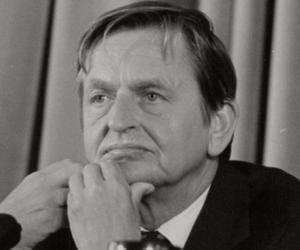
Former prime minister of Sweden, Olof Palme led the Swedish Social Democratic Workers’ Party and rose to be one of Sweden’s most internationally renowned politicians. A prominent lawyer, he started his political career as PM Tage Erlander’s personal secretary. He had also held the ministries of education and communications.
Ian Smith was a politician who served as the prime minister of Rhodesia (today known as Zimbabwe) from 1964 to 1979. Born to British immigrants in the Southern Rhodesian Midlands, he was a controversial figure who personified “White Rhodesia.” While his detractors denounced him as "an unrepentant racist," his supporters hailed him as "a political visionary.”
Menachem Begin was an Israeli politician who served as the sixth Prime Minister of Israel. In this position, he signed a peace treaty with Egypt in 1979, for which he and Egyptian politician Anwar Sadat shared the Nobel Prize for Peace. He implemented several reforms to improve the socio-economic condition of Israeli citizens and improve the general quality of life.
Joe Clark is a Canadian statesman, businessman, and politician. In 1979, he became the youngest person to be elected as the prime minister of Canada and served in this position until 1980. He lost the leadership of the Progressive Conservative Party of Canada in 1983 before gaining prominence once again in 1984 when he served as a senior cabinet minister.
The ninth Prime Minister of India, P. V. Narasimha Rao, is often called the Father of Indian Economic Reforms due to a major economic transformation in India during his prime ministership. He dismantled the Licence Raj and his economic policies rescued India from an impending economic collapse.
